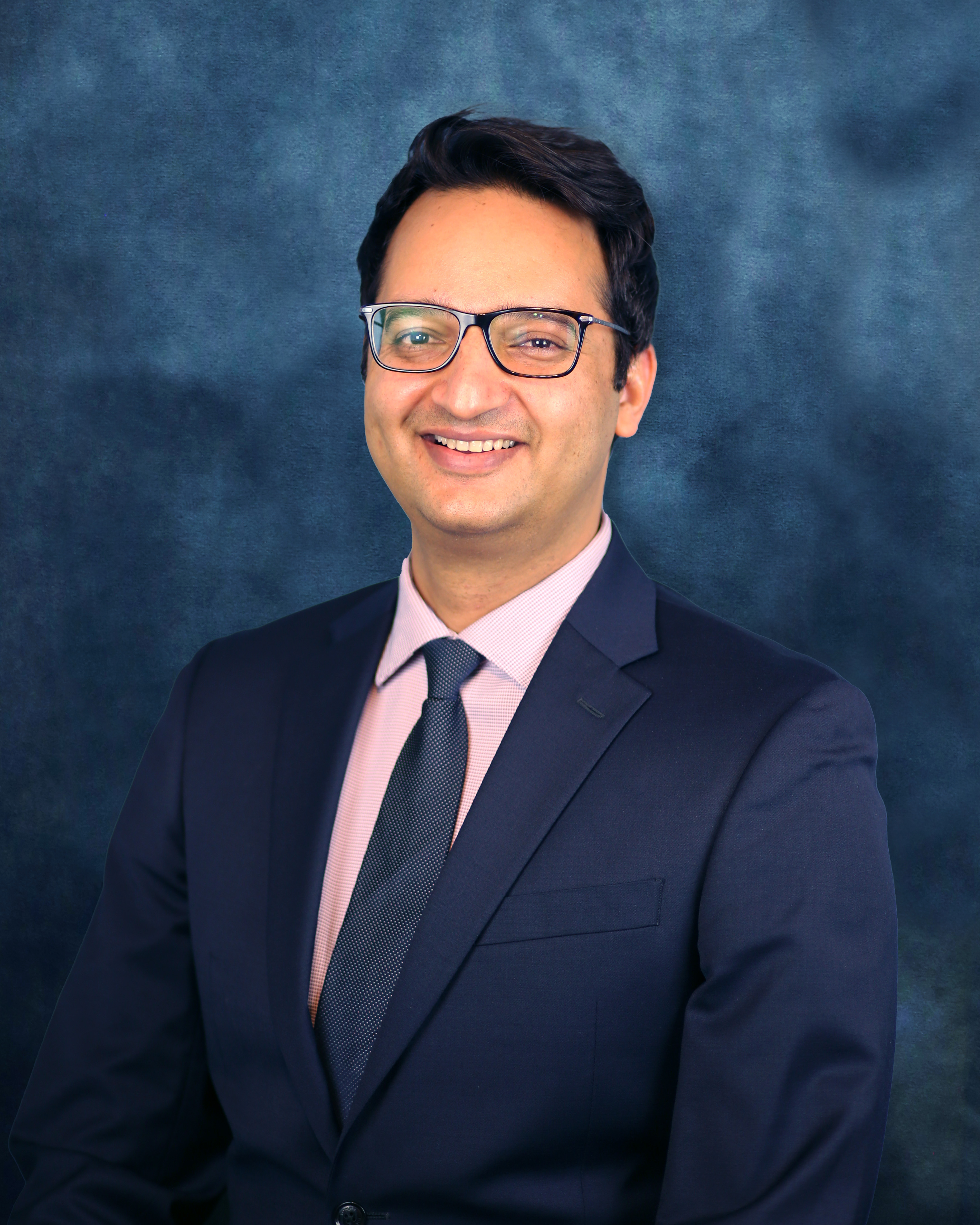Published on June 16, 2023
Read Time: 3 Minutes
Three Things to Know
- Dr. Arun Gautam, a critical care pulmonologist, was inspired to become a physician after watching the compassionate care provided by doctors in his community.
- Dr. Gautam sees adult patients (ages 18 and up) for pulmonary (lung) conditions and diseases.
- Dr. Gautam performs EBUS bronchoscopy, a minimally invasive procedure that can be used to diagnose and stage lung cancer, detect lung infections and identify other inflammatory lung conditions.
Growing up in Rampur, India, Pulmonologist Arun Gautam, MD, has vivid memories of his local doctor.
“In our community, our doctor was a vitally important and respected community member,” Dr. Gautam said.
“I remember my dad having open heart surgery, and the experience was profound. Everyone, from the cardiologist to the nurses, was extremely caring and reassuring. From these early, positive exposures to medicine – and my love for science – I knew I wanted to pursue a career in healthcare," he said.
Dr. Gautam, a critical care pulmonologist, joined Phelps Health in December 2022. He sees adult patients (ages 18 and up) for pulmonary (lung) conditions and diseases. A common procedure he performs is an EBUS bronchoscopy, or endobronchial ultrasound. Keep reading to learn more about this procedure.
Dr. Gautam graduated from Indira Gandhi Medical College and Hospital, and went on to complete his medical residency at the University of Connecticut. Early on in his residency, he completed his first rotation in the Intensive Care Unit (ICU).

“We were faced with many alarming situations, but I was inspired watching the medical staff work together in the face of these challenges,” he said. “I like that pulmonary critical care is multifaceted: I get to work with the most critical patients in the ICU to patients living with daily, chronic conditions [like asthma] in the clinic setting. I enjoy the opportunity to form relationships with my patients over the years.”
Dr. Gautam’s care philosophy is simple and straightforward.
"I strive to be an advocate for my patients."
“Modern medicine is understandably complicated, and this often confuses patients,” he said. “I strive to be an advocate for my patients, to help them understand the different procedures they may undergo and the specialists they may need to see.”
Outside of work, the pulmonologist enjoys spending time with his wife (who also is a doctor) and their two young daughters. He also enjoys traveling, taking long drives – which was admittedly easier before children – hiking and spending time outdoors.
“I chose Phelps Health because I felt a connection to the small-town atmosphere,” added Dr. Gautam. “I think patients can get lost in bigger systems, and I can provide more personalized care in a smaller healthcare system. It’s a great fit for me.”
EBUS Bronchoscopy
Did you know? Before spring 2023, Phelps Health patients would have to travel to Springfield or St. Louis to have an EBUS (endobronchial ultrasound) bronchoscopy. Learn more about this procedure that Phelps Health Pulmonologist Arun Gautam, MD, performs in Rolla.
What is an EBUS?
An EBUS is a minimally invasive procedure that does the following:
- Diagnoses and determines the stage of lung cancer
- Detects lung infections
- Identifies other inflammatory lung conditions
A provider’s referral is required for this procedure.
When might an EBUS be recommended?
If you have abnormal lung nodules and/or enlarged chest lymph nodes found on a CT (computed tomography) scan, your healthcare provider may recommend this procedure.
What is the difference between an EBUS and a mediastinoscopy?
Before the EBUS, the only way to take a biopsy of an enlarged chest lymph node was to perform a surgical procedure called a mediastinoscopy. A mediastinoscopy involves making a small incision just above the breastbone. A scope is then inserted to take tissue samples.
With an EBUS, a pulmonologist can perform needle aspiration (biopsy) of an enlarged lymph node using a bronchoscope inserted through the mouth. A bronchoscope is a thin, tube-like instrument with a light and lens for viewing.
During this outpatient procedure, your doctor will use a small ultrasound located at the tip of the bronchoscope to find the abnormal area within the lung or enlarged lymph node around the airway.
Multiple tissue samples are taken from those areas, using a fine needle. No incisions are necessary, unlike with a mediastinoscopy. The EBUS procedure typically lasts anywhere from 45 minutes to 1 hour.
Is this procedure painful? Will I be sedated?
An EBUS is not painful. Patients are put under general anesthesia or moderate sedation. Some people may experience a sore or itchy throat after the procedure as the tube may irritate vocal cords.
For More Information
Learn more about Phelps Health Critical Care Pulmonologist Arun Gautam, MD.